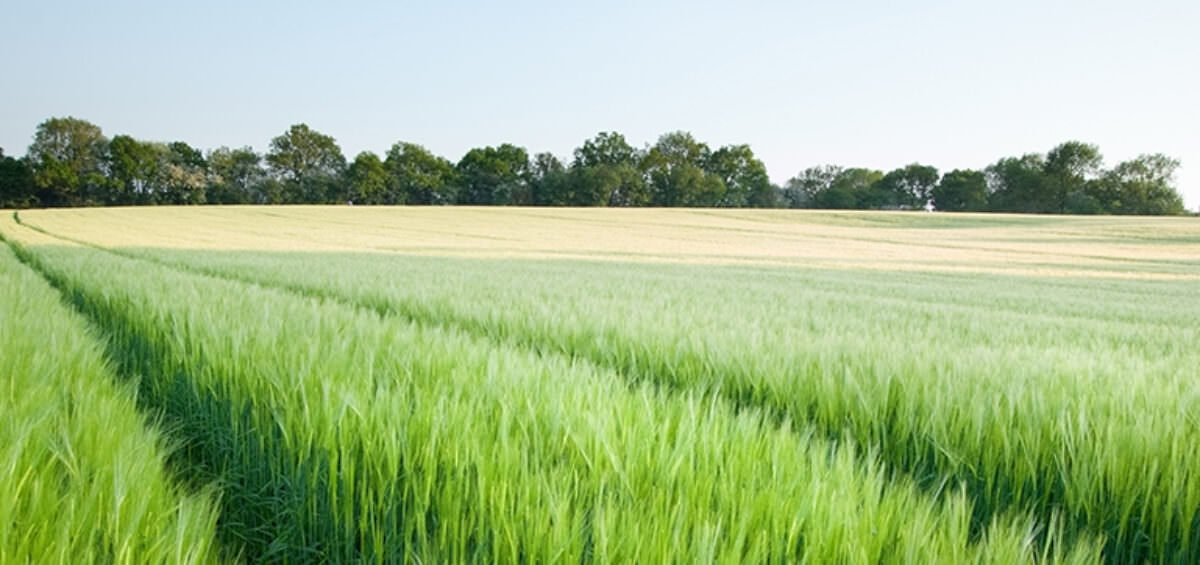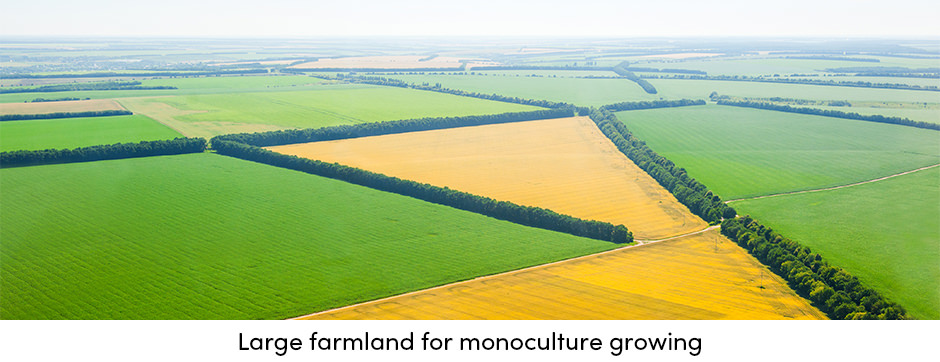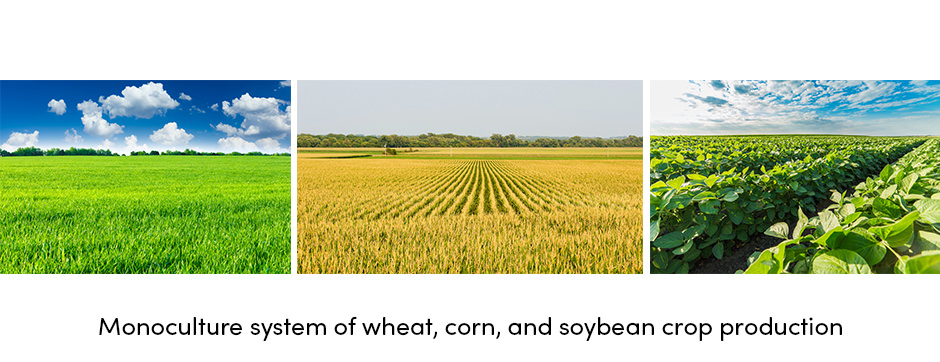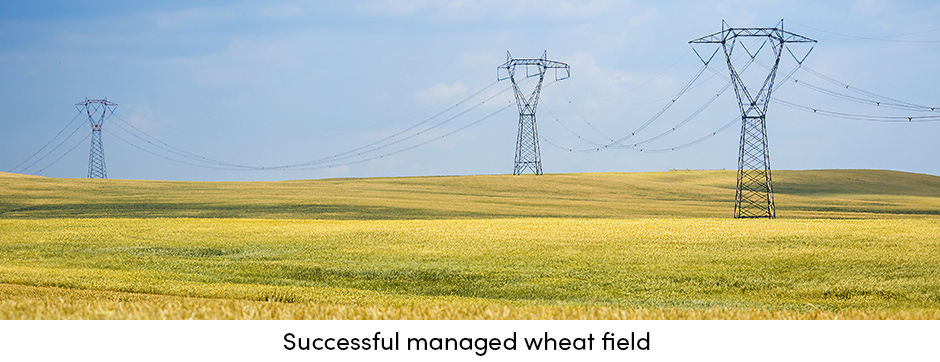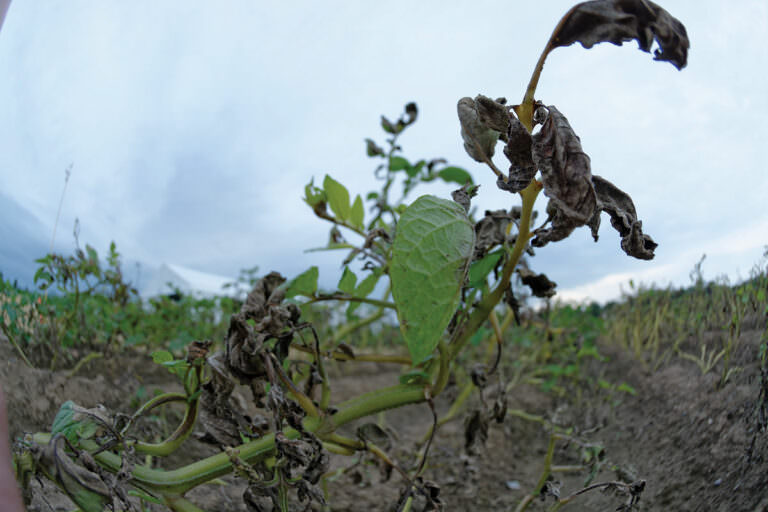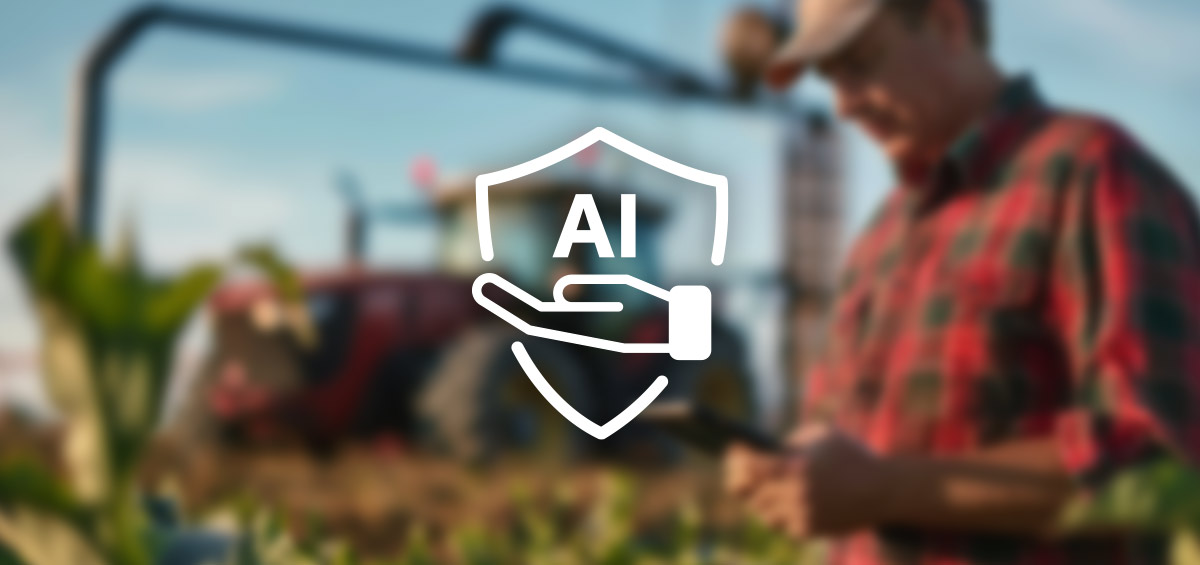Food is the main driving force for human and animal life. For this reason, farming is an important practice that is used worldwide. Farmers from all around the world use various farm techniques and crop production systems to produce quality crops and achieve high yields.
Although there are many farming types used to grow crops worldwide, only two crop production systems are known universally among farmers; monoculture and polyculture.
Monoculture crop production is the system in which a single crop is grown on the same piece of land year after year. This system is mostly practiced in large-scale crop productions and includes growing both annual crops and trees (permanent crops). Monoculture is often related to the farming of important industrial crops such as:
- Field crops – wheat, corn, rice, rapeseed, sugar cane, cotton
- Animal feed – soybean, corn, alfalfa
- Agrofuel – rapeseed, soybean, palm oil, jatropha, sugar cane
- Tree plantation – pine, eucalyptus, coffee, citrus, fruiting trees.
Since monoculture implies growing genetically identical crops on the same surface, it can’t be identified as a natural farming system. Plants have a genetic predisposition to mutations and development of diverse plant species. Additionally, in a monoculture system, the farmer determines the plant potential. Every season he grows new genetically identical crops, thus disabling crop biodiversity.
How Beneficial Is a Monoculture System?
The monoculture system has been shown to have positive effects on farm productivity and profitability. The main advantages of this farm system are:
- Higher crop yields – by continuously growing only one crop, a farmer can develop the best farm practice to achieve high yields
- Yield optimization – growing crops adopted on certain environmental conditions, such as drought, saline soils, or high temperatures, helps maintain a sustainable yield
- Lower cost input – monoculture relies on machinery use instead of human labor, which is more expensive
- Growing only one crop allows farmers to save money by only having to employ one set of farm machinery. In being able to afford all needed machinery, he will become more likely to have a successful crop production.
Monoculture Threatens Plant Biodiversity
Despite the potential to achieve high and stable yields, the monoculture system may have negative effects on the soil, environment, and human livelihood, including:
- Rural depopulation – in rural areas where large monoculture crop productions take available water resources and land, local population is forced to leave
- The market becomes dominated by only a few intensively grown crops, thus disabling smallholder farmers to sell their goods
- Increased input of artificial fertilizers to boost the crop yield
- Increased input of chemical pesticides due to increased insect pest and disease occurrence
- Threaten plant and animal biodiversity
- Soil degradation – after years of monoculture farming, the soil becomes exhausted and contains less nutrients
- Crop production stability – plants that have adapted to growing under specific environment conditions are more vulnerable to changes, putting the yield at risk
In the past, monoculture has shown to be a very unreliable farm system due to crop’s unconformity to new and modified environmental conditions. One of the more commonly known negative effects of monoculture is the Irish potato famine which was caused by the plant pathogen Phytophthora infestans (potato late blight).
Potato plant infested with late blight
To prevent this and other similar incidents, the recommended farm practice is to include a variety of crops in crop production and rotate them seasonally. Crop rotation is a good foundation that is important to managing healthy and sustainable farming and protecting the environment. Each farmer is responsible for deciding whether or not to practice a monoculture production system of farming.
Text sources: Carbon Trade Watch
Image sources: Wired || Spud Smart
